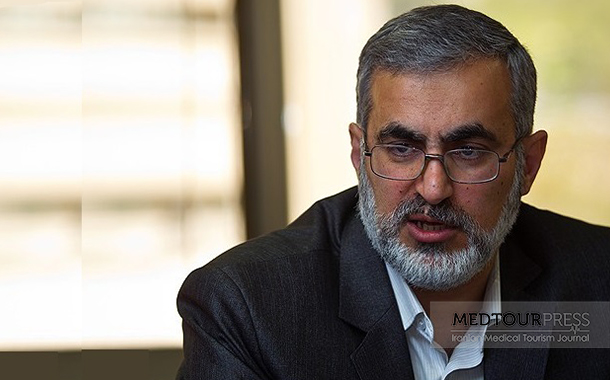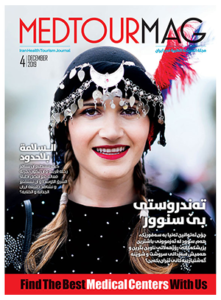Medtourpress’ Interview with Dr. Gholam Ali Ja’afari, Head of the Poisoning Section of the “Al-Ghadir” Hospital.
Iran is amidst the countries who have reached great capabilities in curing different forms of poisoning. Some of these poisonings often change behavior chronically, with the patient affected, being subject to a long period of toxic symptoms.
Dr. Gholam Ali Ja’afari, head of the poisoning section of the “Al-Ghadir” Hospital and professor at the Islamic Azad University, Highlights the collective capabilities of Iran in the treatment of different kinds of poisoning, as well as its potential for the attraction of medical tourists.
What is the position of Iran in comparison with other forerunner countries in the treatment of poisoning? Has Iran secured a satisfactory level in the field?
“The treatment of toxic diseases covers a large area in Iran and the treatments for these afflictions are provided with high standards to the patients. The number of poisoned patients in our country is quite high, although there are no precise statistics at hand, but one could say that each day approximately 700 to 800 patients are hospitalized in Tehran alone, with another group of patients opting for private hospitals instead. If we were to look at the country as a whole, it would not be far from reality to say that, there are more than several thousand cases of poisoned patients hospitalized across the country each day.
If were to look at the forensic statistics, we’d notice that, fortunately, the death toll of the patients is relatively small compared to the number poisoned cases.
This matter alone showcases the high quality of poisoning treatment in Iran.”
Considering that Iran has indeed reached a high quality in their treatment of poisoning, what are its potentials for attraction of foreign patients in this field?
“This matter must be put into two categories, the first being the patients whom poisoning case is not chronic or recursive. When the poison enters the patient’s body, then every second matters in their treatment, time is of vital importance for these patients. Sometimes these cases are not even capable of being moved from one city to another due to the risk of irreversible consequences that it might cause.
In poisoning cases such as these, the patient needs to be put under treatment in the very first capable and available medical center. In these cases having foreign patients is void of purpose.
If were to look at the forensic statistics, we’d notice that, fortunately, the death toll of the patients is relatively small compared to the number poisoned cases.
This matter alone showcases the high quality of poisoning treatment in Iran.”
The second category, are the patients afflicted with recurring cases of poisoning. In this field, Iran is capable of attracting foreign patients considering its high treatment capabilities. Sometimes addicted individuals suffer from chronic poisonings. For example due to the mixture of lead and other heavy forms of metals in some drugs, the chances of chronic poisoning is quite high in addicted individuals. This group of people is particularly susceptible to long and recursive poisonings.
There are also people that face chronic poisoning due to their occupation. Such as people dealing with Mercury, Arsenic and heavy metals, and as a result contact recursive poisonings.
Bearing in mind the long experience of Iran in the treatment of these chronic poisonings, foreign patients troubled by these poisonings could visit the medical centers of Iran for treatment.







